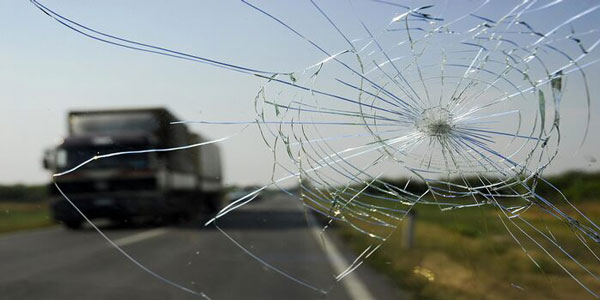Find Out: Will My Insurance Replace My Windshield?
Susan Kelly
Dec 11, 2023
Introduction
You're cruising along the highway when suddenly, "bam!" a rock smashes through your windshield, leaving a chip in its wake. You looked at the windshield chip and decided to wait before fixing it. A speed bump a few days later causes the chip to expand into a 6-inch fissure. "Is it too late to fix the windshield? What is the best course of action?" The good news is that comprehensive coverage on your auto insurance policy may pay for the cost of replacing your windshield.
How to Determine Whether to Repair or Replace Windshields?
Cracks and chips in the rock are usually fixable. That's why fixing any cracks or chips as soon as you spot them is crucial. Damage can be contained and prevented from spreading more easily if a chip or crack is minor. It is more likely that you will need to replace it once the damage has spread.
Does Car Insurance Cover Windshield Damage?
Minimum and full coverage insurance are the two most popular auto insurance.
- Bare-bones protection What constitutes "auto insurance" is the minimum level of protection mandated by law in the state where you reside before you may lawfully drive a car. Comprehensive, and any state does not mandate collision coverage. As a result, if a rock shattered your windshield while traveling on the highway, you would not be covered by comprehensive insurance unless you specifically added it to your policy.
- With full coverage and the minimum level of insurance your state mandates, you also get collision and comprehensive protection for your vehicle. These extras assist pay for repairs after events like fire, flood, theft, vandalism, or an accident in which you are at fault.

Does Comprehensive Cover Glass?
Obtaining collision insurance and comprehensive as a supplementary policy is a common practice. Simply put, it safeguards your vehicle from "acts of God" or any other form of damage that isn't the result of a collision with another vehicle. While most policies will cover a broken windshield, it's still a good idea to check your specific policy to see what's covered, your deductible, and if all of your glass is included.
Does Collision Insurance Cover Windshield Replacement
Any collision you cause, whether with another vehicle or a stationary item like a tree, will be covered by collision insurance. Unless your insurance policy includes a no-deductible windshield replacement program, you will likely be required to pay a deductible when filing a claim for collision damage.
Will Another Driver's Insurance Replace My Windshield?
We need to know how your windshield became chipped, cracked, or damaged to answer that question. As a rule of thumb, damages caused by another driver will be covered by their liability insurance. You'll need to file a claim with your collision insurance or pay out of pocket to get your windshield fixed if you were at fault in the accident. Your comprehensive auto insurance policy should pay for any scratches or dings a careless driver didn't cause. Alternatively, you might choose not to submit a claim and pay any necessary costs personally. Depending on the specifics of your policy, you may be required to pay a deductible if you claim your insurance.
Should I Use Insurance to Replace My Windshield?
Determine the extent of the damage, your deductible, and the cost of replacing the windshield before deciding whether or not to claim with your auto insurance company. In states with no windshield damage deductible, it is more cost-effective to have the glass fixed rather than replaced. Verify your auto insurance policy's deductible if you don't live in a "no-fault" state. It could be a good idea to find out how much the repair will cost by getting an estimate. If the cost of repairs is close to your deductible, you might as well foot the bill yourself.
Will Filing a Glass Claim Raise my Insurance Rates?
It is up to your insurance carrier to decide if a claim for broken glass will increase your premiums in the future. Regarding your auto insurance rates, a windshield repair or replacement claim shouldn't make much of a dent, if any. The cost of your insurance may go up at renewal if you file any claims related to broken glass within a short time frame when more than three claims for glass damage occur during three years, for instance.

Conclusion
Replacing a windshield is expensive, but repairing chips and cracks is easy and cheap. If you have full coverage on your auto insurance policy, your provider may pay to fix or replace your windshield camera for your advanced driver assistance system (ADAS). Comprehensive policies typically cover auto glass coverage. However, some insurance firms provide separate policies with cheaper or even zero deductibles in certain areas. Determine if filing a claim for the broken windshield will be covered by your insurance company.







